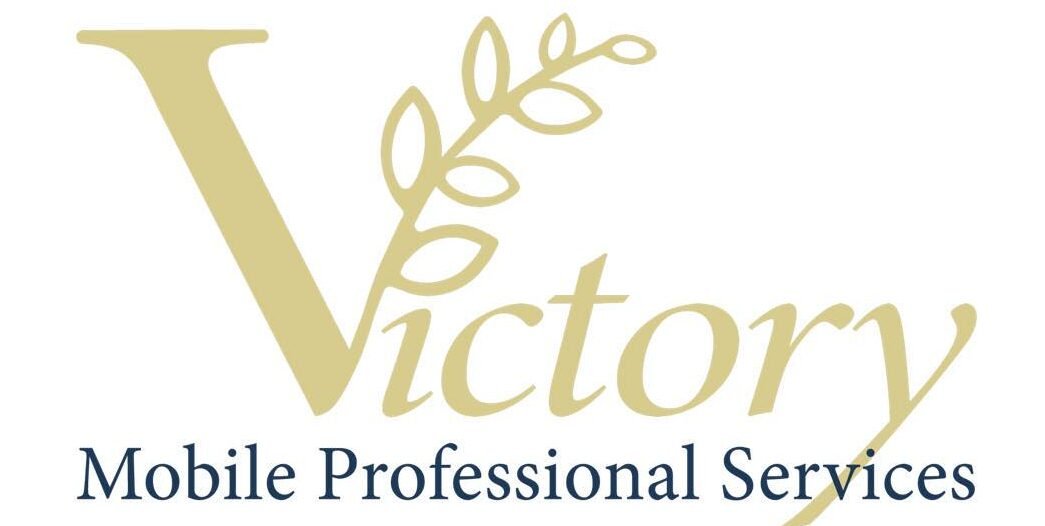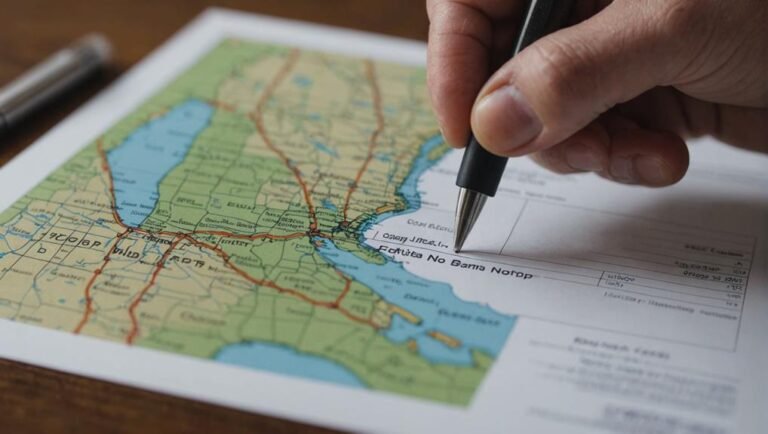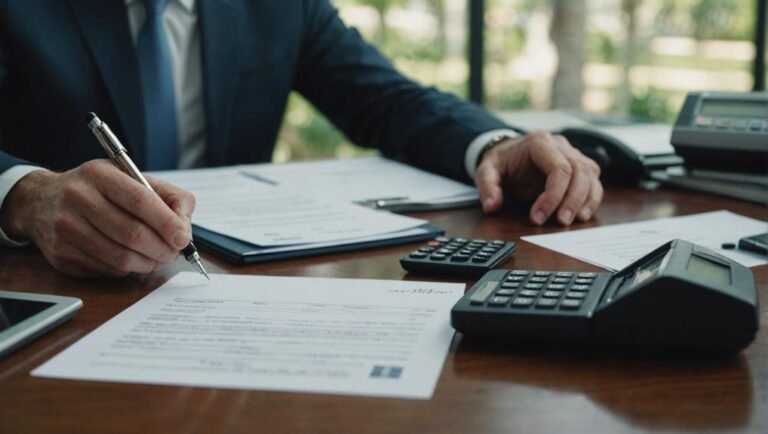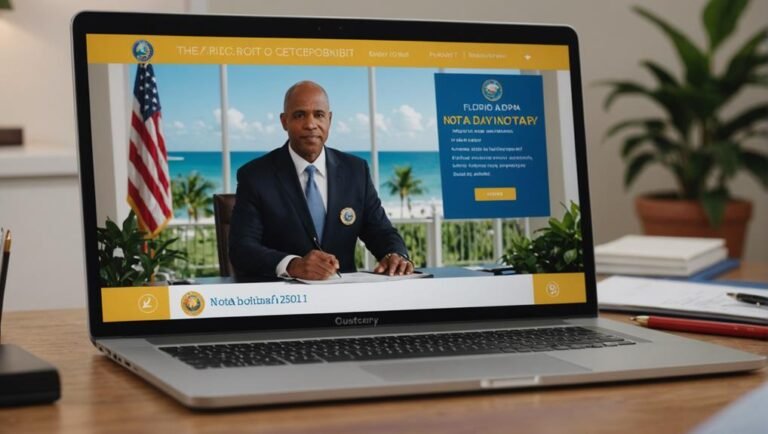To grasp the new Florida notary rules, make sure you comply with remote notarization prerequisites, updated notary block forms, statutory acknowledgment language, and precise recording protocols. Familiarize yourself with the revised two-hour training, required technology, bonds, and insurance for remote notarization. Implement the new notary block form, incorporate updated notarization language, and avoid risks of document rejection by following the guidelines. Adhere to Florida Statute, include the necessary statutory acknowledgment language, and use the updated form promptly for accurate document recording. For more information on Florida notary rules, seek guidance from legal experts provided.
Key Takeaways
- Complete a 2-hour training course and meet technology requirements.
- Use the revised notary block form with specific language.
- Incorporate the new statutory acknowledgment language in documents.
- Ensure accurate recording and compliance with updated laws.
- Contact attorneys for guidance on Florida notary rules and recording issues.
Remote Notarization Requirements
To conduct remote notarization in Florida, you must complete a two-hour training course and meet specific technology stipulations, as mandated by state law. The training equips you with the necessary knowledge to perform online notarizations effectively.
Additionally, posting a $25,000 bond and acquiring $25,000 errors and omissions insurance coverage are prerequisites to becoming a remote notary in Florida. This insurance serves as a protective measure against potential errors that may occur during the notarization process.
The technology stipulations for remote notarization include utilizing secure audio-visual communication to confirm the identities of signers and witnesses. You must also guarantee that the electronic forms used for notarization comply with Florida Statute 117.05.
Adhering to these requirements is essential for maintaining compliance and conducting remote notarizations lawfully in the state of Florida. By meeting these obligations, you're better equipped to provide efficient and secure online notary services to your clients.
Changes to Notary Block Form
Guarantee compliance with Florida notary regulations by implementing revisions to the notary block form for all documents and affidavits.
To assure adherence to the Notary Laws as per Florida Statute, consider the following:
- Updated Notary Block Form: Incorporate the new form that includes specific notarization language for acknowledgments and oaths.
- Document Rejection Risk: Be aware that failure to update the notary block form may result in documents signed after January 1, 2020, being rejected.
- Importance of Compliance: Emphasize the necessity of using the updated notary block form to avoid issues with document acceptance post-January 1, 2020.
Statutory Acknowledgment Language
Incorporate the newly needed statutory acknowledgment language into all notarized forms to align with the updated notary laws in Florida.
The revised notary laws in Florida mandate that individuals must now include specific text in the acknowledgment language of documents. This new necessary text is vital for compliance, whether the acknowledgment is completed through physical presence or online notarization.
As of January 1, 2020, all notarized forms must adhere to the updated requirements by utilizing the new statutory acknowledgment language. Failure to incorporate this language may lead to the rejection of documents following the implementation of the revised laws.
It's essential for notaries in Florida to be well-versed in these changes and make sure that the statutory acknowledgment language is correctly included in all relevant documents moving forward. Stay informed and updated on the latest requirements to fulfill your role effectively as a notary public in Florida.
Recording Issues
Start implementing the updated notary block form immediately to guarantee precise recording and compliance with the revised notary laws in Florida. Making sure the correct recording of a document is vital, and utilizing the proper notary block form is essential to avoid any potential recording problems or rejection issues.
Here are three key points to keep in mind regarding recording issues:
- Signing Date Importance: Remember that the date the document is signed holds significant importance for recording purposes. Be meticulous in recording this date accurately to maintain the document's validity.
- Transition to Updated Form: Documents signed before January 1, 2020, can still use the old notary block form. However, documents signed on or after January 1, 2020, must use the updated notary block form to adhere to the new regulations effectively.
- Prevention of Rejection: Using the revised notary blocks promptly can help prevent any rejection issues during the recording process. Stay proactive by adopting the updated form to streamline the recording procedure and ensure compliance with the current notary laws in Florida.
Contact Information for Inquiries
To inquire about real estate, title insurance, banking, or business transactions, contact attorneys Rob Freedman, Jourdan Haynes, and Vinnie Vaughn for assistance. These legal professionals are equipped to address your inquiries and provide guidance on matters relating to real estate transactions, title insurance policies, banking regulations, and business dealings.
It's important to note that contacting these attorneys doesn't automatically establish an attorney-client relationship but rather offers a resource for inquiries and assistance.
If you require reprint permission for any published materials or have specific questions regarding real estate inquiries, the firm offers a Contact Us form for your convenience. This form can be utilized to request permission for reprinting, inquire about real estate matters, or seek further assistance from the specified attorneys.
Feel free to reach out for guidance on navigating Florida notary rules, recording issues, or any other related inquiries you may have.
Frequently Asked Questions
Can I Notarize a Document Without the Person Present in Florida?
Yes, you can notarize a document without the person present in Florida through remote notarization. This process involves online verification, identity verification, electronic signatures, virtual presence, and adherence to notary laws for remote commissioning and digital notarization. Utilize remote notary services via video conferencing.
What Are the Requirements to Notarize a Document in Florida?
To notarize a document in Florida, guarantee compliance with remote notarization regulations, verify identification, meet training requirements, obtain an electronic signature, use a notary stamp, include witness signatures, prevent fraud, uphold legal standards, maintain a notary public commission, and authenticate documents.
Are Florida Notaries Required to Keep a Log?
As a Florida notary, you must keep a log of your notarial acts. This record-keeping duty guarantees accurate documentation of each notarization, including essential details like date, time, type of notarization, and signer's identity.
How Much Can a Notary Charge per Signature in Florida?
You can charge up to $10 per signature for notarization services in Florida, as per legal limits. This fee guarantees consumer protection, maintains a competitive market, and upholds notary ethics. Transparency measures include displaying a fee schedule.
Conclusion
To wrap up, the new Florida notary rules bring about significant changes in remote notarization requirements, notary block forms, statutory acknowledgment language, and recording procedures.
It's essential for notaries to stay informed and compliant with these updates to guarantee the validity and legality of their notarized documents.
For further inquiries or clarifications regarding these regulations, don't hesitate to contact the appropriate authorities for guidance.
Stay vigilant, stay updated, and stay notarizing!






